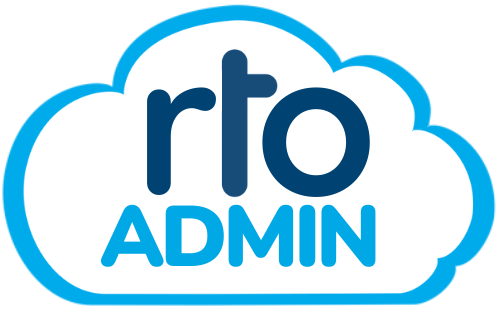Have you ever wondered how educational institutions manage to keep track of countless aspects such as enrolment, assessment, finances, and compliance, all while ensuring quality delivery of education? This complexity is where a Student Management System (SMS) becomes indispensable. An SMS simplifies the administrative and academic operations, thereby allowing institutions to focus on student growth and learning outcomes.
Introduction to Student Management System (SMS)
A Student Management System (SMS) is a software solution designed to facilitate the comprehensive management of various aspects of an educational institution. These include compliance, assessment, courses, enrolment, calendars, scheduling, finance, and automation. By centralizing all these functions, an effective SMS streamlines processes that are typically time-consuming and complex.
In its entirety, an SMS not only simplifies these intricate processes but also enhances the overall efficiency and transparency of the institution. This systematic approach allows educators and administrators to focus on fostering educational growth rather than getting bogged down by administrative burdens.
Essentials for an Effective SMS
When selecting a Student Management System, there are certain essential features and functionalities that should be considered. These core components ensure that the system is not only robust but also adaptable to the specific needs of your institution.
Rich Contact Data and CRM Capabilities
An effective SMS should facilitate rich contact management, enabling the storage and organization of extensive contact information. CRM capabilities are crucial for maintaining relationships with students, parents, and other stakeholders, providing a comprehensive view of communication histories, and enhancing engagement.
Comprehensive Coverage
The system must encompass a wide range of functionalities including:
- Compliance: Ensuring adherence to regulatory requirements.
- Courses: Managing curriculum and course enrolments.
- Assessment: Facilitating both formative and summative assessments.
- Enrolment: Streamlining the student enrolment process.
- Finance: Managing financial operations such as invoicing and payments.
- Scheduling: Organizing calendars and scheduling classes.
- Automation: Automating repetitive administrative tasks.
- Trainer Competency: Tracking and managing trainer qualifications.
- Resource Library: Centralized repository for educational materials.
- Work-Based Learning: Supporting practical, real-world learning experiences.
Each of these components plays a pivotal role in ensuring the smooth operation of an educational institution.
Core Features in Detail
To better understand the benefits and functionalities of an SMS, let’s delve deeper into each of its core features.
Compliance
Compliance is fundamental to any educational institution. An effective SMS should support comprehensive reporting for AVETMISS (Australian Vocational Education and Training Management Information Statistical Standard), USI (Unique Student Identifier), and other regulatory data requirements. Additionally, it should manage trainer competencies and efficiently capture student documents.
Courses
Course management is critical to provide a structured learning environment. The SMS should enable the setting up and management of courses, tracking learner progress, and issuing certificates. This ensures courses are well-organized, and students can easily track their progress and achievements.
Assessment
An effective SMS streamlines the assessment process. It should support online assessments that provide instant results, as well as custom assessment plans that cater to the specific needs of each course. This ensures assessments are fair, timely, and tailored to the educational objectives of the institution.
Online Enrolment
Online enrolment capabilities are essential for modern educational institutions. An SMS should manage all aspects of enrolment, including custom forms and payment processing. This makes the enrolment process seamless and accessible, enhancing the student experience.
Finance
Financial management is another critical component. The SMS should generate invoices, track payments, create payment plans, and export financial data to accounting software. This ensures that financial operations are transparent, accurate, and efficient.
Scheduling
Effective scheduling is key to managing academic and administrative activities. The SMS should manage calendar appointments, highlight conflicts, and notify attendees. This ensures that all events are well-coordinated and there are no scheduling conflicts.
Automation
Automation of repetitive tasks such as sending course information, attendance warnings, and quality surveys can significantly enhance efficiency. An effective SMS should enable such automation, freeing up valuable time for educators and administrators to focus on more critical tasks.
Trainer Competency
Managing and tracking trainer competencies is essential to maintain the quality of education. The SMS should provide features to manage trainer qualifications, track competency expiration, and send reminders. This ensures that all trainers are well-qualified and their certifications are up-to-date.
Resource Library
A centralized resource library is indispensable for efficient document management. The SMS should offer cloud-based document management with version control and categorization. This ensures that educational materials are easily accessible, organized, and up-to-date.
Work-Based Learning
Supporting work-based learning is essential for providing practical, real-world experiences. The SMS should offer mobile access to course details and the ability to capture evidence of work-based learning. This ensures that students can easily integrate their practical experiences with their academic learning.
Below is a table summarizing the core features of an effective SMS:
| Core Feature | Description |
|---|---|
| Compliance | Reporting on AVETMISS, USI, and regulatory data; managing trainer competencies and student documents. |
| Courses | Setting up courses, tracking progress, and issuing certificates. |
| Assessment | Online assessments with instant results and custom assessment plans. |
| Online Enrolment | Managing enrolment forms and payment processing. |
| Finance | Generating invoices, tracking payments, and exporting financial data. |
| Scheduling | Calendar management, conflict highlighting, and attendee notifications. |
| Automation | Automating repetitive tasks like course information and attendance warnings. |
| Trainer Competency | Managing and tracking trainer qualifications and expiration reminders. |
| Resource Library | Cloud-based document management with version control and categorization. |
| Work-Based Learning | Mobile access to course details and capturing evidence of work-based learning. |
Additional Resources and Support
Beyond the core functionalities, having access to extra resources and support can significantly enhance the utility of an SMS.
Blog and Support
Regular updates through a blog and dedicated support services are vital. Whether you are based in Australia, New Zealand, or anywhere else in the world, it is important to have reliable support and continuous updates on the latest trends and best practices.
Sales Contact and Product Demos
Access to sales contacts and product demos can provide greater clarity on the functionalities of the SMS. This ensures that you can make an informed decision based on your specific needs.
Client Stories and Further Resources
Client stories and additional resources on topics such as RTO (Registered Training Organization) marketing, compliance, and training strategies can be invaluable. They provide real-world examples and insights that can help you maximize the effectiveness of your SMS implementation.
Below is a summary of additional resources and support:
| Resource/Support | Description |
|---|---|
| Blog and Support | Regular updates and dedicated support services for different regions. |
| Sales Contact | Access to sales representatives for queries and product information. |
| Product Demos | Live demonstrations of the SMS functionalities. |
| Client Stories | Real-world examples and success stories of SMS implementation. |
| Further Resources | Additional information on RTO marketing, compliance, and training strategies. |
About the Company
When considering an SMS, it’s important to know about the company behind the product. A reputable company offering comprehensive training management solutions can significantly simplify processes for better outcomes. It’s crucial to ensure that the company is dedicated to continuous improvement and customer satisfaction.
Comprehensive Training Management Solutions
The company should provide a holistic approach, covering all aspects of student and training management. By offering a one-stop solution, they can help educational institutions optimize their operations and improve overall efficiency.
Focus on Simplifying Processes
The primary goal of an SMS provider should be to simplify complex administrative and academic processes. By doing so, they enable educators and administrators to focus on delivering high-quality education and fostering student growth.
Understanding the company’s ethos, approach, and resources can help you decide whether their SMS solution aligns with your institution’s needs and goals.
Concluding, an effective Student Management System is an indispensable tool for any educational institution. It not only simplifies complex processes but also enhances operational efficiency, ensuring that educators and administrators can focus on what truly matters—providing high-quality education and fostering student growth. By leveraging the right SMS, you can streamline compliance, course management, assessments, enrolments, financial operations, scheduling, and more. This comprehensive approach ensures that all aspects of student management are handled efficiently, transparently, and effectively.
Implementing a robust SMS can transform your institution, enabling a higher standard of educational delivery and administrative excellence. Therefore, it’s essential to evaluate your institution’s specific needs and choose an SMS that encompasses all necessary features, offers robust support, and is backed by a reputable company dedicated to continuous improvement. In essence, a well-chosen SMS is not just an administrative tool but a strategic asset that drives educational success.




